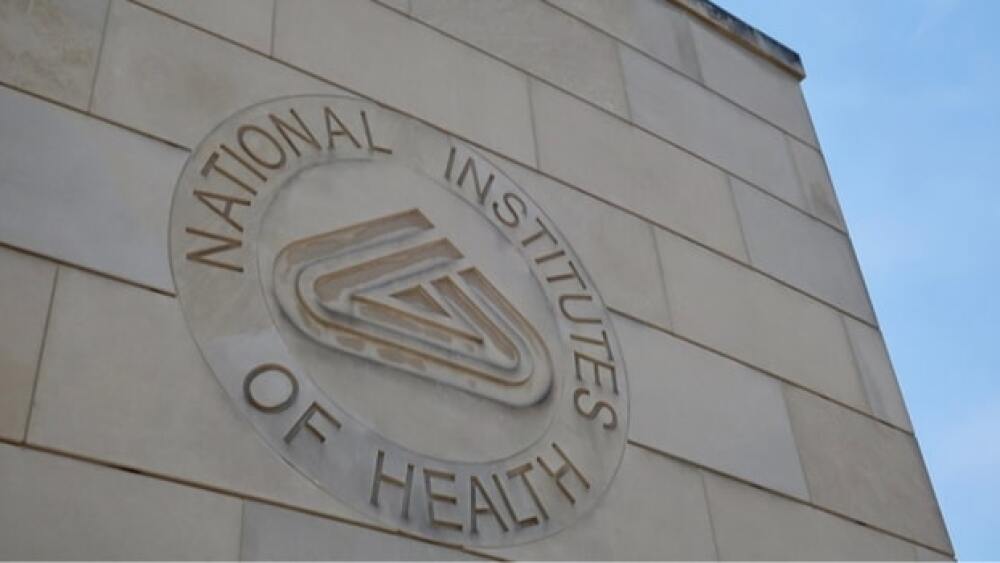Francis Collins, the director of the NIH, told STAT they were “really well-powered, rigorously designed clinical trials.”
Jer123/Shutterstock
The National Institutes of Health (NIH) announced plans to launch a “flurry” of large-scale clinical trials for treating COVID-19. Francis Collins, the director of the NIH, told STAT they were “really well-powered, rigorously designed clinical trials.”
The studies include a laundry list of approaches, including monoclonal antibodies against the virus SARS-CoV-2 in hospitalized patients as well as patients who can receive treatment at home; drugs focused on tamping down the cytokine storm caused by an overreaction of the immune system; blood thinners to prevent issues associated with blood clots; and vaccines, including the one under development by Moderna.
Of course, the NIH is one of the key players in the government’s Operation Warp Speed (OWS), which has a goal of delivering 300 million doses of a safe and effective vaccine against COVID-19 by January 2021. It is a partnership between HHS, the Centers for Disease Control and Prevention (CDC), the U.S. Food and Drug Administration (FDA), the NIH, the Biomedical Advanced Research and Development Authority (BARDA), and the Department of Defense (DoD).
In the interview, Collins said he has become “obsessed” with NIH’s focus on treatments for COVID-19. He compared it to when he was running the Human Genome Project, but this current product is much more important.
“Nobody was going to die if we didn’t get the genome project done on a certain day,” Collins said.
The NIH’s Accelerating COVID-19 Therapeutic Interventions and Vaccines (ACTIV) effort includes about 100 people across government, academia, and industry to organize large clinical trials. The goal is to have a more coordinated approach to prioritizing and accelerating development of therapies and vaccines.
To date, more than 1,200 COVID-19 trials have been registered with the U.S. government, but 38% are small, studying fewer than 100 patients. Larger, more focused trials are necessary, which is why Collins is emphasizing the importance of ACTIV.
“I think it has been just what was needed to help us from going down a pathway of continued small studies and chaos about results,” he said.
Regeneron Pharmaceuticals has a separate NIH trial for an anti-COVID-19 antibody cocktail. Regeneron made the announcement on July 6, that along with the NIH’s National Institute of Allergy and Infectious Diseases (NIAID), it was launching Phase III trials of REGN-COV2, its two-antibody cocktail for treatment and prevention of COVID-19.
There are specifically two trials. A Phase III trial will study if REGN-COV2 can prevent infection in uninfected people who have had close exposure to a COVID-19 patient. The cocktail has also been advanced into the Phase II/III portion of two adoptive Phase I/II/III trials evaluating the cocktail in treating hospitalized and non-hospitalized patients with COVID-19.
The Phase III prevention trial will be run at about 100 locations and enroll about 2,000 people in the U.S. The Phase II/III treatment trials in hospitalized patients will evaluate about 1,850 hospitalized patients and 1,050 non-hospitalized patients, and is planned for about 150 sites in the U.S., Brazil, Mexico and Chile.
But those trials are separate from this new set of large-scale studies. Collins indicates that biopharma companies make the decision on whether to participate in the studies, and is not bothered when a company like Regeneron or Pfizer, who is working with BioNTech on vaccines, decide they can move faster on their own.
He also emphasized that because this type of research is both complicated and unpredictable, it’s to everyone’s benefit to run several studies in parallel. The NIH is trying not to duplicate efforts, which is why it is studying Gilead Sciences’ remdesivir, but not dexamethasone, an older steroid drug that is showing signs of prolonging survival in the most severely affected patients in the UK.
Collins also emphasized that the NIH-sponsored trials will be rigorously designed “so that you’re not wasting time, money, or people’s willingness to volunteer.” He also said that although focused on speed, they will not cut corners.
“We will not put something out, and the FDA won’t let us, that is not safe and effective. That’s the bottom line,” Collins said. “Even if we come up empty, I will not tolerate the idea that you put something out that’s actually harmful.”
The NIH also has a $1.5 billion projected dubbed the Rapid Acceleration of Diagnostics (RADx), which is working to develop faster, reliable clinical tests for COVID-19. Collins noted that current polymerase chain reaction (PCR) testing “doesn’t seem to work very well in terms of handling the demand when the demand starts going up higher and higher.”
The RADx grants support to small startups that have new technology, which so far has had 600 applications, with 27 entering what is being called the “Shark Tank” stage. One of the applications is already starting efforts focused on manufacturing scale up and clinical validation. Most of the tests are point-of-care assays.





